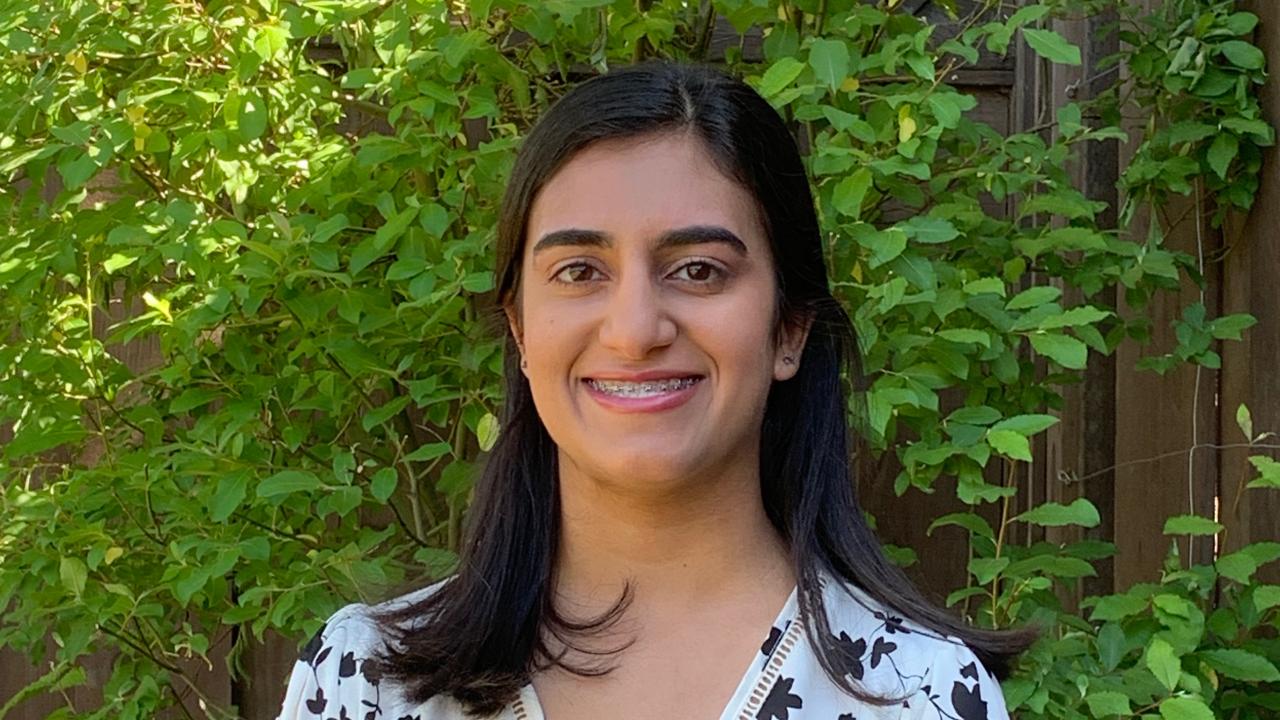
A Q&A with College of Biological Sciences Undergraduate of the Year Tara Shahrvini
One of the recipients of this year’s College of Biological Sciences’ Undergraduate of the Year Award is Tara Shahrvini, a graduating senior double majoring in neurobiology, physiology and behavior and Spanish. The Undergraduate of the Year Award is given to a student based on their academic excellence, research activity and involvement in science.
Congratulations Tara!
You can learn more about Tara in the Q&A below
Why did you choose to attend UC Davis?
Initially, I was drawn to UC Davis by its strong life science programs and welcoming environment. From the students studying at the CoHo to frisbee games on the quad, I was confident that UC Davis was the right place for me to grow as a student and call home for four years. As a large research institution, UC Davis has offered me countless opportunities to explore many of my interests in both research and clinical care. The supportive culture of UC Davis makes it the perfect school for any future Aggie!
Briefly describe your research and other academic activities:
As a freshman, I joined the CONNECTED perinatal mental health clinic to explore my growing interest in women’s health. Helping the clinic’s providers bridge the gap between psychiatric and peripartum care was inspiring and motivated me to pursue a future career in medicine. As a volunteer, I gained invaluable insight into the challenges that our health institutions face and worked to promote health equity within the greater Sacramento area.
Witnessing the stigma that surrounds mental health treatment, I co-founded a student organization called PANDA (Postpartum Anxiety N’ Depression Advocates). As president, I have led PANDA to promote stigma-free access to mental health resources on campus and within the Davis community. I am incredibly proud to have created a group that will continue to bring positive change to UC Davis, beyond my time as a student. My fellow PANDA members and Aggies have helped me grow as a leader, and together we have strived to promote mental health wellness.
Following my sophomore year, I was motivated to apply my interests in women’s health to translational research. I joined the Engebrecht lab and studied the role of the C. elegans BRC-1 gene, which is orthologous to the human breast cancer susceptibility gene called BRCA1, in maintaining meiotic integrity. Conducting research has allowed me to engage in the hands-on science that originally drew me to UC Davis. Dr. Engebrecht has been an unbelievably supportive mentor, and I am thankful to have learned so much under her guidance.
In addition, during my senior year, I had the privilege of representing the student body, by serving on the Campus Judicial Board. As a CJB member, I gained a new perspective and appreciation for the inner workings of an institution of higher education that promotes integrity and equality.
Finally, I have also served as a Spanish medical interpreter at the Salud Clinic, a Federally Qualified Health Center in West Sacramento. Volunteering at Salud was the perfect opportunity to merge my interests, studying both Spanish and physiology. Through my experiences as a Spanish major, I have been able to give back to the local community and embrace the diversity within Yolo and Sacramento counties.
How has philanthropic funding helped you in your educational pursuits? What have you been able to do or accomplish because of this type of support?
During my third year, I practiced grant writing and was awarded the Provost Undergraduate Fellowship to fund my project in the Engebrecht lab. Earning funding through this fellowship allowed me to conduct my first independent research project, examining the sex and chromosome specific mechanisms of crossover regulation in C. elegans. I was also able to engage in a new aspect of research and practice the critical and analytical thinking necessary to design my own experiments.
What are your goals for the future?
Looking ahead, I hope to pursue a future in medicine. I am drawn to primary care in order to continue promoting health equity and advocate for the health needs of underserved communities. I look forward to integrating and applying the skills and knowledge that I have gained through my NPB and Spanish degrees wherever I may go.
